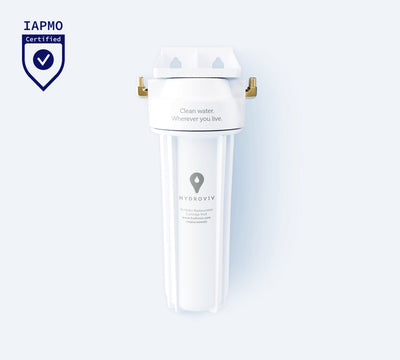Problems We Found In Indianapolis Drinking Water
RSS
Kezia Snipe | Hydroviv Research Analyst
Updated May 14, 2021 to include current available data
We've updated our assessment of Indianapolis drinking water to include the most recent available data. Our Water Nerds used data from Citizens Energy Group (the water provider for Indianapolis), U.S. Environmental Protection Agency (EPA), as well as from samples that we collect and analyze. Our team then uses these data and cross references toxicity studies in scientific and medical literature. The water filters that we build for our customers in Indianapolis are optimized with this information in mind.
Source Of Indianapolis Drinking Water
Indianapolis gets water from a variety of sources. The White River supplies two of the four plants (White River and White River North). Geist Reservoir supplies water for the Fall Creek Treatment Plant. Eagle Creek Reservoir supplies water to the T.W. Moses Treatment Plant. Supplementary groundwater is also available depending on service areas.
Pesticides & Volatile Organic Compounds In Indianapolis Tap Water
In the most recent water quality data, Indianapolis disclosed the detection of Atrazine, 2,4-D, Simazine, Xylenes, and Toluene. These chemicals typically contaminate drinking water from agricultural and industrial runoff. While the disclosed levels are low, they are easily removed by a properly designed water filter.
Lead In Indianapolis Drinking Water
Lead enters tap water through older lead service pipes and lead-containing plumbing. When corrosion control measures put in place by the municipality fail (like what recently happened in Flint, Michigan), lead leaches into the drinking water, and can reach dangerous levels. Currently, 10% of samples analyzed for lead in Indianapolis are over 7.7 parts per billion. While the city is currently in compliance with federal regulations, EPA, CDC, and American Academy of Pediatrics both acknowledge that there is no safe level of lead, and federal regulations do not take into account levels measured at an individual tap.
Chromium 6 In Indianapolis Drinking Water
Chromium 6 is a highly toxic metal that is not currently regulated by the EPA. In recent years, Indianapolis tap water has averaged 80 parts per trillion for Chromium 6. To put it in perspective, these levels are 4 times higher than the concentration determined to have negligible impact on cancer risk.
Disinfection Byproducts (DBPs) In Indianapolis Drinking Water
Disinfection byproducts (DBPs) are a category of emerging contaminants that form when chlorine-based disinfectants react with naturally-occurring organic matter. Although these chemicals are not currently regulated very well, the EPA has disclosed that they are associated with an increased risk of bladder cancer, as well as kidney, liver, and central nervous system problems.
Chlorine In Indianapolis Drinking Water
Like many other municipalities in the United States, Indianapolis injects its water with chlorine to protect against waterborne illness. While not typically considered to be harmful on its own, many people find that removing chlorine from drinking water greatly enhances its taste and odor.
Still Have Questions About Indianapolis Tap Water?
Hydroviv is a water filtration company that uses water quality data to optimize water filters for each city’s water. The chemicals that we list above are what we consider to be “points of emphasis” so we can build the best water filters for Indianapolis tap water, but all of our water filters provide broad protection against other contaminants commonly found in drinking water (e.g. VOCs, heavy metals [including lead], pharmaceuticals, solvents, pesticides, mercury).
If you’re interested in learning more about water filters that have been optimized for Indianapolis tap water, please check out www.hydroviv.com, reach out to one of our water nerds by email (hello@hydroviv.com) or through our live chat. We also frequently post water-related news on Twitter or Facebook.
Please Share This Indianapolis Water Article On Social Media With Anyone You Think Would Benefit From The Information!
Recommended Articles For You
What Do I Need To Know About Lead Contamination And Lead Poisoning?
How Do I Filter Chromium 6 From Drinking Water?
What Do I Need To Know About Arsenic In Drinking Water?
Are TDS Meters A Marketing Gimmick?




